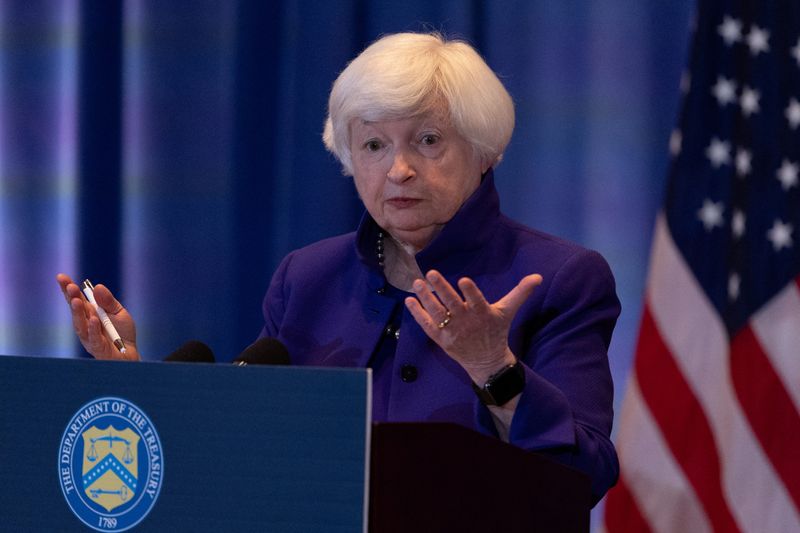Yellen: Indo-Pacific trade talks need ‘further work’
2023.11.13 22:46

© Reuters. FILE PHOTO: U.S. Treasury Secretary Janet Yellen attends a press conference after a meeting with Chinese Vice Premier He Lifeng, ahead of a U.S.-hosted APEC (Asia-Pacific Economic Cooperation) Summit in San Francisco, California, U.S., November 10, 2023.
By David Lawder and Ann Saphir
SAN FRANCISCO (Reuters) – U.S. Treasury Secretary Janet Yellen on Monday said negotiations on the trade section of Indo-Pacific Economic Framework will need further work, a setback for the Biden administration which had hoped to announce substantial completion this week.
Yellen told a news conference there has been “very substantial progress” on three of the four areas under discussion by the 14 IPEF member countries, but there are “remaining issues” on trade.”
A centerpiece of the Biden administration’s efforts to deepen economic ties with Asian nations and counter China’s rising dominance in the Pacific, the IPEF is a forum for multilateral talks aimed at forging agreements in a range of areas, including trade.
She said there had been “significant progress” on the trade pillar, “but it looks not to be complete, like something that is likely to require further work.”
“My understanding is that very substantial progress has been made on three of the four pillars” of the talks, she said, referring to talks on supply chains, the climate transition, and anti-corruption.
Yellen’s comments on the trade pillar were in line with those of people familiar with the talks, who told Reuters that talks on improving labor and environmental standards, and ways to enforcement compliance have run into resistance from some member countries.
The Biden administration had hoped to announce some outcomes on the trade pillar this week as leaders of Asia Pacific Economic Cooperation (APEC) countries gather in San Francisco.
U.S. President Joe Biden is eager to portray IPEF as producing meaningful outcomes to IPEF countries, which are mostly APEC members, as he seeks to offer Asia a U.S.-led alternative to deeper economic ties to China.








